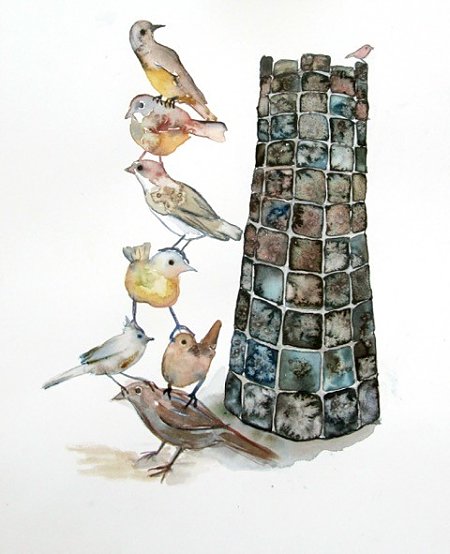
What it Means for the Bear to Eat Ash
what, anyway,
was that sticky infusion, that rank flavor of blood, that poetry, by which I lived?
-Galway Kinnell
Three brothers drive to the mountains
on the first warm day of the year
in search of bears asleep, last meat
holding red against December, in caves
water carved before the water left.
Menthols and Skoal, fries and beer
leak through the cracks of the boys’
hands stained with coal, black
as winter streams, their breath
like fur untouched by light for months.
Oil from the rifle barrel tattoos the green
leaves of rhododendron, a prayer for the blood-
trail they hope to paint. On the last sunny day
of September the youngest stepped on a broken bottle
with unshod feet, white skin flowing like water
around the boulder of his heel. Now, he walks
with a limp behind his siblings, four-month-old scar
screaming beneath his sock.
At the blueberry field, the brothers make a fire
from winterkilled trees and fry bacon for sandwiches.
In August the middle boy hunted rattlesnakes with a cane
and a bucket, their father paying five dollars a rattle.
The oldest brother waits for news from Norfolk Southern
before deciding whether to enlist. For the past five nights,
he’s dreamed of walking the bottom of the reservoir, finding
the boy who drowned last June and holding him in his arms,
the two of them floating like dogwood petals over the spillway.
Bombarded by the songs of tufted tit mice, a bear
crawls from his den with fuzzy eyes, makes his way
to a seep under a grove of hemlocks where the ground
flows, and bends, to drink away the taste of acorns,
neck thin and frayed as a grapevine.
He discovers the still-smoking ring, sends
his tongue into the fire’s corpse, ash
floating up and covering his face,
a mask as delicate as spider webbing.
The oldest brother glasses the bear, motions for the middle boy
to click off the safety, while the youngest stares into the bottom
of the fold where railroad tracks make stitches on the cheek
of the river.
When he takes the shot, sunlight glints off the scope,
the oldest already running the ridge. The middle brother
sets the rifle down, hands squeezing his sides. And the bear
comes to rest in a patch of broken blackberry canes
as the youngest slides down the talus slope,
calling to his brothers that the purple thorns
spinning from its skull are the color of February
and the dresses their mother used to wear.
